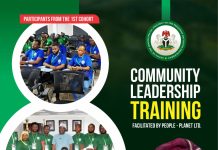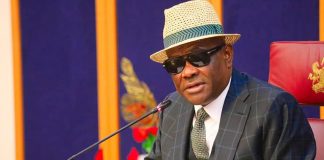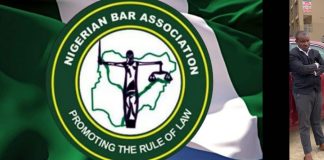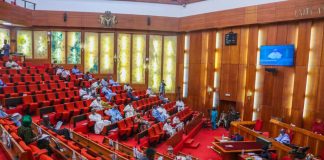🌿 Ruzu Non-Alcoholic Herbal Bitters
Ruzu Non-Alcoholic Herbal Bitters is a natural health supplement specially formulated to:
- ✅ Promote general wellness
- ✅ Detoxify the body
- ✅ Support the treatment of various ailments
Made from a powerful blend of 100% organic and medicinal herbs, Ruzu is completely alcohol-free, making it ideal for:
- 👪 All age groups
- 🌱 Health-conscious individuals
- 🌿 Anyone seeking non-alcoholic herbal remedies
Whether you're looking to boost your vitality, cleanse your system, or support healing the natural way, Ruzu Bitters offers a trusted herbal solution.
Defamation,the danger of forged certificates, and hasty conclusions
By Ekpa, Stanley Ekpa
In a 2022 sermon, Pastor Paul Enenche preached on the danger of fake certificates in both the professional life of an individual and in society at large. Given the scourge of forged certificates in Nigeria and around the world, it is commendable that Pastor Enenche has remained consistent on the subject matter. In 2020, a report emerged of statistics from screening exercises in Niger and Plateau States, indicating a heightened level of fake certificates that were “so huge that one is prompted to believe that there are probably more forged certificates in circulation in Nigeria than genuine ones.” The screening committee discovered that 80 percent (3,057 civil servants) of the staff of the State Ministry of Education were in service for several years with forged certificates. In fact, the Supreme Court disqualified the joint ticket of Mr David Lyon and Senator Biobarakuma Eremieyo, just a few hours after their swearing-in as Governor and Deputy Governor of Bayelsa State, on the ground that Senator Eremieyo presented forged and falsified documents for the poll.
Despite these facts and the good intentions of the revered Pastor Enenche, in the viral video where he spotted the “inconsistencies” in Anyim Veronica Nnenna’s testimony on her breaking the jinx in her family to become the first graduate, after “bagging a law degree from the National Open University of Nigeria (NOUN),” he is not a competent court of law to judge, conclude hastily, or subject the lady to such ridicule in public. Such degrading treatment clearly violates her fundamental rights to the dignity of the human person, as Section 34 (1) (a) of the 1999 Constitution of the Federal Republic of Nigeria and Article 5 of the African Charter on Human and People’s Rights guarantee.
By his degrading conclusion and reproach of the member’s testimony as a “lie,” simply for her inability to use the appropriate professional lexicon for the degree of law, he failed to meet the legal expectation of institutions and individuals to ensure that “every individual shall have the right to respect the dignity inherent in a human being.” In this material instance, no matter how strongly the man of God felt that the member was “guilty,” as he presumed, the lady was entitled to the presumption of innocence until the church has done its due diligence to ensure that a church member who came to church to unburden her brokenness and to give gratitude to God does not go home disgraced, traumatised, damaged, and denied in the presence of God. One wonders if testifying of God’s goodness is a contest of constructive expressions and fluency in English or a true expression of one’s gratitude in whichever form, language, or level of grammatical proficiency? More worrisome is the pastor’s usurping of the role of God; if God had truly helped the lady and the pastor feels that her grammatical inefficiency vitiates God’s, it is indeed reprehensible, to say the least.
“Beyond the law, in a country where the majority of the people rely on God and fate for solutions to their socio-economic challenges, religion cannot afford to fail the poor and helpless members whom society and the government have already failed.”
Since every piece of evidence suggests that the lady actually graduated from the said institution upon completion of a law degree, it is immaterial if she is unable to use or distinguish between a Bachelor of Science and a Bachelor of Laws. His reproach rather falls squarely within the defamatory definition of Section 373 of the Criminal Code, as his comment clearly injured “the reputation of any person by exposing him to hatred, contempt, or ridicule.” It is hard to imagine the ridicule, shame, and ignominy the lady faced as she walked down the pulpit. In Okolie v. Marinho’s case, the court made it abundantly clear that the defamatory words may be spoken, they may be insinuating, and the lady clearly fits the definition of a defamed ‘person’ under the Interpretation Act, Cap. 123 LFN 2004.
Beyond the law, in a country where the majority of the people rely on God and fate for solutions to their socio-economic challenges, religion cannot afford to fail the poor and helpless members whom society and the government have already failed. Her inability to speak fluently or maintain coherent grammatical expression is not because she chooses not to; she cannot speak as fluently as Pastor Enenche because she lacked the privilege, background, and environment to nurture and provide her with quality education in her formative years. Yet, she struggled and strived against great odds to bag a law degree—rather than shame her, she deserves our encouragement. This is the primary purpose of a religious institution like a church: to encourage, give hope, and restore the ‘lost ones’ to God. As the parable of the “lost sheep” teaches us, “If a shepherd has a hundred sheep and one of them has gone astray, does he not leave the ninety-nine on the mountains and go in search of the one that went astray?” Where is the joy that Matthew 18:13 illustrates that “if he finds it, truly, I tell you, he rejoices over it more than over the ninety-nine that never went astray”?
Life is a learning process, and the originators of formal education are well aware of this reality; hence, the need for continuing education as a life-long learning model. Whereas she may not take legal action against Pastor Enenche, the man of God is well advised to take advantage of the crisis and make an honest public apology to the lady, and perhaps, if the spirit leads, feel free to sponsor her to law school when the need arises or support her to take other professional and career development courses that will improve her communication skills and further enrich her grasp of legal terminologies. This will be a sufficient show of love, as Christ would have done, and a mature way to own up to this avoidable mistake. This time demands the man of God to take responsibility and show the basic leadership values of empathy, remorsefulness, communication, and humanness. He is human, and to err is human; to forgive is divine.
God bless the Federal Republic of Nigeria.
Ekpa, Stanley Ekpa a lawyer and leadership consultant wrote via [email protected]


















